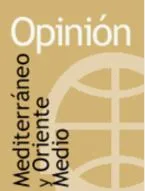The dramatic fallout of leadership vacuum in the Middle East

Francis Ghilès,
Senior Research Fellow CIDOB
10th June 2010 / Opinión CIDOB, n.º 75
The badly mishandled raid by Israeli commandos on a convoy of ships bringing humanitarian assistance to Hamas-run Gaza has severely damaged bilateral ties between Turkey and Israel which started on March 28th 1949 when Turkey became the first Muslim-majority country to recognize Israel. In the words of the Director of the Turkish Research Program at the Washington Institute for Near Eastern Studies, Soner Cagaptay “Not only have the two countries lost each other, but they have also lost a bit of themselves… Israel has lost its second most important ally, a rare friend in a hostile region, and with it a major part of its security…Turkey has lost what makes it special and beloved: its ability to be Muslim and Western at the same time, a uniquely Turkish characteristic.”
The blockade of Gaza has to all intents and purposes failed to overthrow Hamas or to free Gilad Shalit, the Israeli soldier taken hostage, while inflicting on its population a form of persistent collective punishment increasingly perceived as appalling by all but the Israeli government. This policy has been a gift for Hamas which is remaking society in it own image. It has increased antipathy to Israel in the Arab world, in Turkey but also in Europe. According to Josef Joffe, Editor of Die Zeit, Israel has failed to learn the lesson of the recent Lebanon and Gaza wars “that for it to kill civilians is precisely what its enemies want.” It is thus caught in a vicious circle: the more its leaders think the world hates it, the more the Israeli Special Forces shoot their enemies first and ask questions afterwards.
A war tells people terrible truths about itself and siege mentality is hardly conducive to good judgement: Israel’s increasing loneliness, which is partly self inflicted, is making the region a worse place to live for both Israelis and Palestinians. Turkey for its part appears to be making a play for regional power: ever since the AKP came to power in 2002, Turkish Israeli ties have been fraying. While some dismissed the sharp criticism of Israeli policies as domestic policies, the new Turkish foreign policy foreshadowed the coming tensions between the two countries.
Dr Tarek Youssef, dean of the Dubai School of Government has noted that “this government in Turkey in the past three years has erased hundreds of years of Arab suspicions of the Turks, an amazing achievement that should not be overlooked.” However it would be a mistake to see Turkey as either a hegemon or a role model for the rest of the Middle East. A non-Arab state, even a Muslim majority one, cannot expect to define how power is exercised or identity expressed in the Arab world but Turkey – because it combines democracy, nationalism and a thriving economy, does offer an attractive tool box to those who seek to improve the quality of governance in the Middle East and North Africa.
For Turkey, the challenge is to remain true to itself – the greater visibility of its Muslim identity has been praised in Washington and Brussels but that does not make Turkey unique as there are 57 other Muslim countries. The country’s unusual mixture in domestic and foreign policy, specifically its secular democratic culture, its membership of NATO and traditional good ties with Israel must continue to drive Turkish policy.
The founder of modern Turkey, Kemal Ataturk told the Turks to look west, to join Europe. But if Angela Merkel and Nicolas Sarkozy keep on locking the door, Europe should hardly be surprised at recent Turkish moves to use its strategic location, its growing economy and its powerful army forces to play a greater regional role. Such a development appears all the more inevitable at a time when Europe and the United States have abdicated any responsibility for trying to bring peace to the Middle East. Having acted as cheerleaders for free elections in Palestine, they then helped to isolate Gaza in order to condemn Hamas. They condoned the collective punishment of the people of Gaza, thus giving the lie to all the fine words on democracy which they have been so hypocritically preaching to Arabs and Turks alike for years.
Turkey has now become, and after Iran, the biggest headache for the United States. After Turkey voted against further Iran sanctions in the United Nations Security Council this week, the US defence secretary, Robert Gates, blamed the EU for pushing the country eastward by refusing to give it “the kind of organic link to the west that Turkey sought”. The blame game will get the US and the EU nowhere all the more as Egypt, a former regional power, sinks into diplomatic oblivion and Ryad is careful to upset neither Tehran nor Washington. The US president Barack Obama understands better than his predecessor that the failure to ensure the Palestinians getting a state of their own is spreading anti American, and for that matter anti-European poison across the Muslim world. The Israeli Palestine conflict does not explain much of the terror which engulfs the region which runs from the Caucasus and Palestine to Afghanistan and Pakistan. But this festering wound has already claimed the relations between Israel and it's only Muslim-majority ally in the region. If it is not cauterised, the fall out, for the region, for Europe and for the United States can only get worse.
Francis Ghilès,
Senior Research Fellow CIDOB